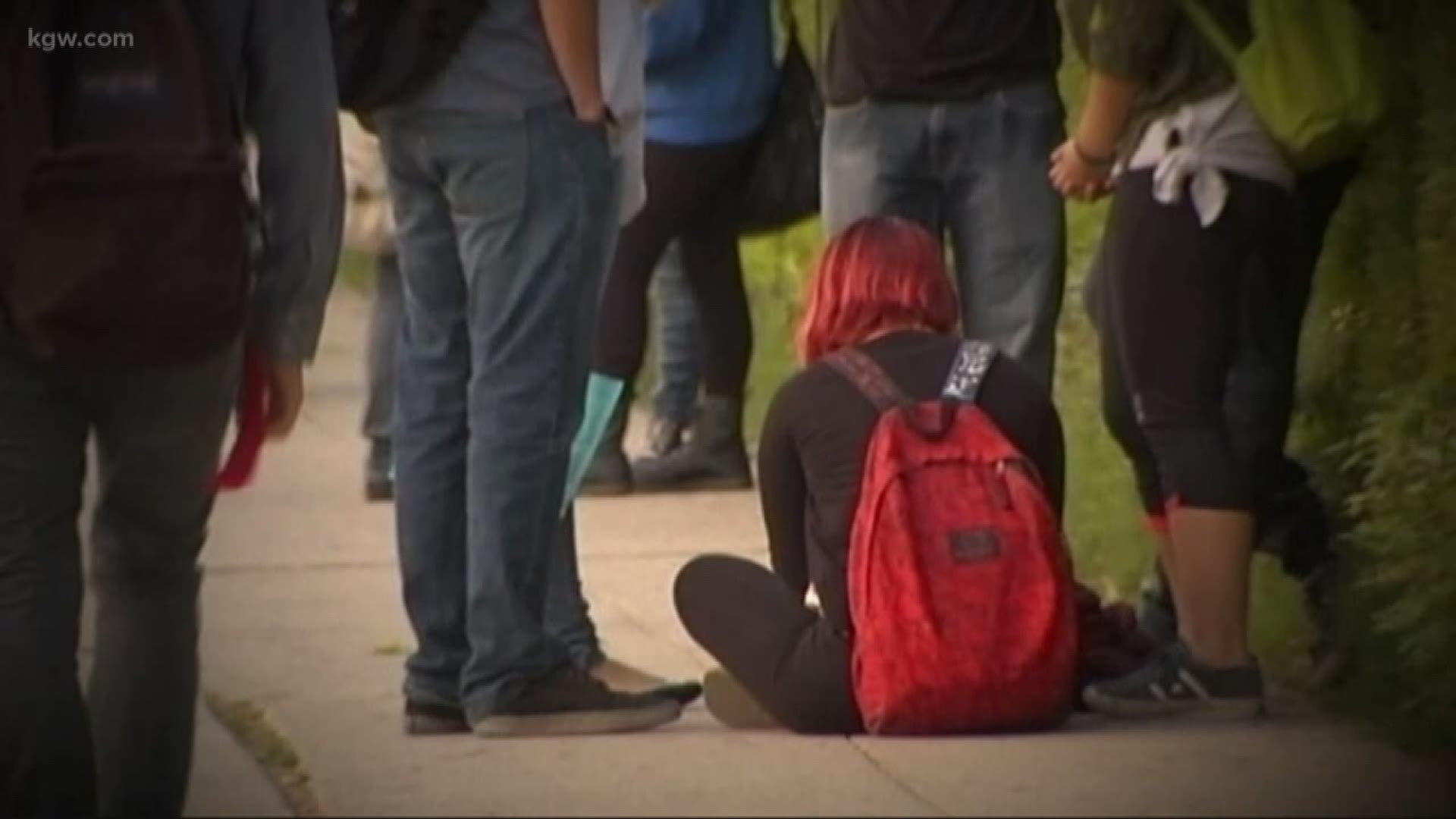PORTLAND, Oregon — An alternative school in Portland is trying a new way to bring mental health care to students.
Rosemary Anderson High School hired two mental health specialists to their school campuses under their initiative called Lead the Change for Mental Health. The therapists are splitting time between the four high school campuses.
A lot of kids who walk through the doors of the high school have been through more trauma than most. Many are battling daily stressors, some are struggling with undiagnosed or untreated mental illnesses.
School therapists said, with their presence, students are opening up and more have been willing to seek help.
“When I was a student here I had a hard time with depression and anxiety. I would not look forward to getting out of bed, so I wouldn't,” said Rosemary Anderson High School graduate Savannah Smith. “I went through an intensive outpatient program. So that was one big thing that would have been very helpful to have a counselor - a therapist - in school.”
Savannah graduated from the high school’s north campus in 2017 as valedictorian, despite her obstacles. Now, she works there.
“A lot of our students have a stigma around it. They want to be strong and don’t think they need it, but they do. A lot of the challenges they’re facing -- our demographic is just different,” Smith said, “We have students who are dealing with a lot of stressors outside of school, like poverty and where their food is coming from and if they're going to get food. So, having someone in school they can just walk downstairs and see is really important to them.”
National data shows one in five children and teens experience mental health issues. Serious mental health problems are on the rise, especially among young people.
But studies show about 60% of students don’t receive the treatment they need because of stigma and lack of access to services and supports. Data also shows most mental illnesses come on by the age of 24.
“So, it’s a really critical time to start addressing and promoting mental health and well-being,” said Laina Yoswein, one of the mental health specialists at Rosemary Anderson. “Oftentimes, I think we can underestimate the complexity and brilliance of young people and also, at the same time, minimize their struggles and what they’re going through when this is really such a key point in their lives.”
Yoswein said teens are still figuring out who they are as they develop, and they deal with a number of stressors and pressures day in and day out. They may also have trauma they’ve never processed or revealed to anyone before.
When left untreated, mental health issues are linked to behavioral problems, troubles in school, delinquency and dropping out. Research shows school-based mental health services lead to academic success and improved well-being, along with safer schools.
According to the National Association of School Psychologists, schools offer an ideal place for prevention, intervention, positive development and consistent communication between families and school staff. The association says students are more likely to seek counseling when services are available in schools.
Yoswein and the other social worker, Beth Kapsch, said they help teens manage stress and anxiety related to school and their personal lives. Without managing these things, Kapsch said it can get in the way of students’ ability to be successful in school and it can lead to larger problems with their mental health.
“Part of what we do is just being there when something comes up,” Kapsch says. “A lot of is just kind of preventative, learning skills to manage things that are hard about navigating adolescence.”
Access can be the biggest barrier to getting help. With Yoswein or Kapsch just down the hall, that barrier is knocked down for both students and staff, as the social workers provide staff support as well.
“With relationships our school staff have with students we are often sometimes the first people to know when something difficult is going on in their lives. So, it’s a really great point to intervene and be able to provide supports,” Yoswein told KGW.
“It also helps overcome stigma. Because there can be so much stigma around accessing mental health care and when we’re in the schools, they start to know us as us individuals who care about them,” Kapsch said. “So, it becomes less about seeing a therapist or seeking support but rather like, Beth is someone I know and trust, so I can talk to her about something that’s hard in my life.”
It becomes about making kids and their families feel more comfortable. It becomes about trust.
Portland Opportunities Industrialization Center (POIC), who runs Rosemary Anderson High School, is not stopping here. Their ultimate goal is to get enough money to put specially-trained mental health social workers on each of their campuses.
A POIC board member has put on fundraisers over the last two years to help pay for the program and has another coming up. Other private donors and grants also chip in to keep it going, and could lead to expansion. You can donate to Lead the Change online as well.
Related: Classrooms in Crisis

